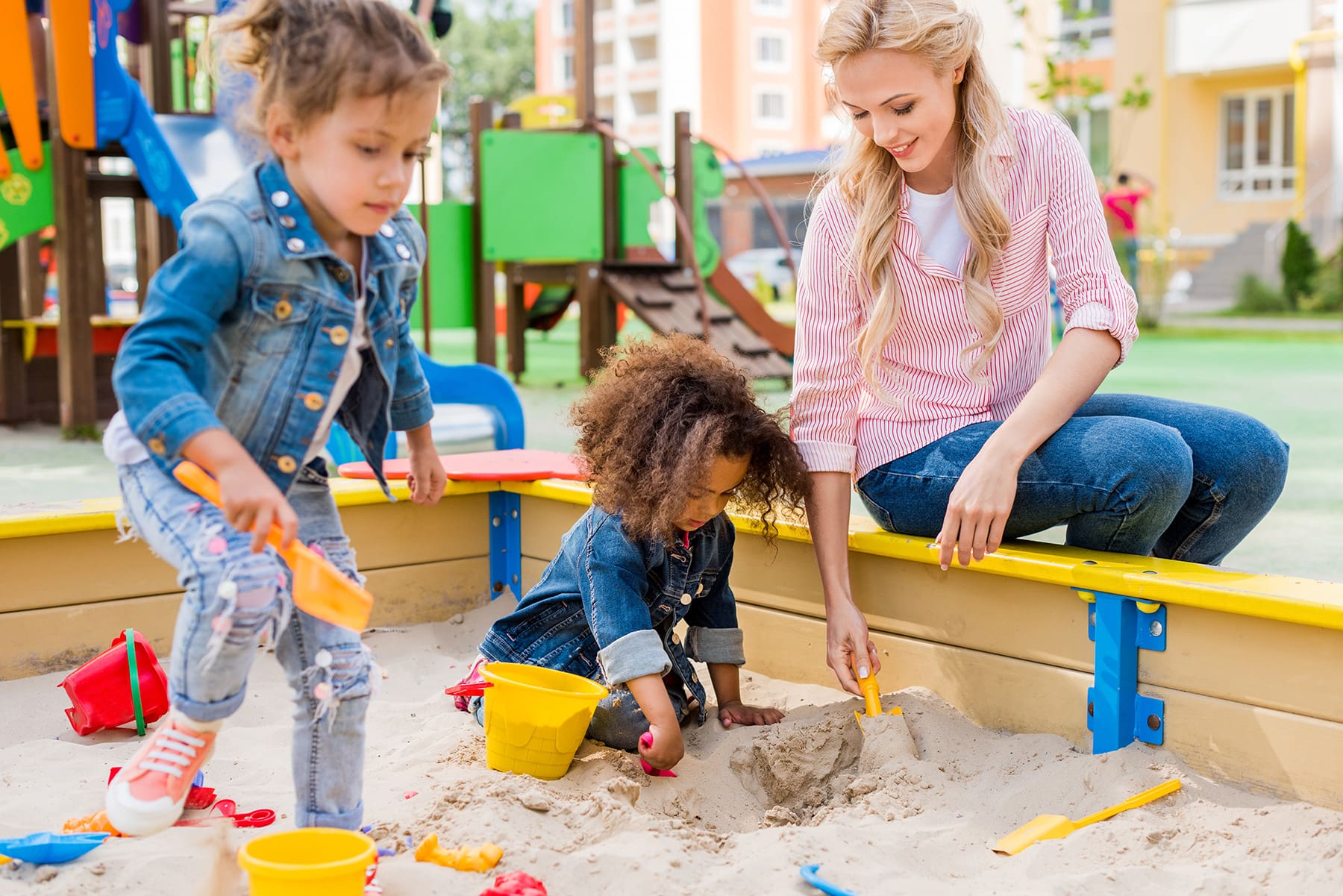Introduction
When you picture a child at play, stacking blocks, zooming around in a superhero cape, or inventing a game on the spot, it might just look like fun and games. But behind those giggles and make-believe moments, something incredible is happening. Play is actually helping your child’s brain grow, solve problems, and understand the world around them.
In fact, research shows that play isn’t just helpful. It’s essential for healthy development.
In this post, we’ll explore how play boosts brainpower, supports learning, and shapes key skills during those crucial early years. Whether your child is deep in pretend play or figuring out how to share a toy on the playground, every playful moment builds important connections in the brain that support language, memory, emotional control, and even planning ahead.
Here’s something amazing: kids actually learn better through play than through direct instruction. That’s because when they play, they’re fully engaged in mind, body, and emotions. Play is one of the most natural and effective ways for children to make sense of their environment.
We’ll look at different types of play, why they matter, and how you can support your child’s development with simple, everyday play. No fancy toys or schedules required.
Why Play Is Crucial for Brain Development
Play isn’t just a way to pass the time. It’s one of the most powerful tools for healthy brain development. Every time your child plays, their brain forms new connections that help with attention, memory, language, and reasoning. In other words, they’re learning. Big time.
Here are just a few ways play supports early learning:
- It strengthens executive functions such as focus, planning, and self-control
- It boosts language skills through chatting, storytelling, and role-playing
- It helps with emotional regulation by letting kids work through feelings in safe, playful ways
- It sparks curiosity, creativity, and flexible thinking
That’s why pediatricians, educators, and child development experts all agree. Play isn’t optional. It’s essential. Whether your child is at home building forts, outside playing tag, or in a classroom play center, they’re developing the skills that shape how they think, feel, and connect with others.
Types of Play That Support Cognitive Growth
Play takes many different forms, and each one helps kids grow in unique ways. From high-energy games to quiet building sessions, variety is key to supporting different areas of development.
Here are a few major types of play and what they teach:
- Physical play: like running, climbing, or playing tag improves coordination, balance, and spatial awareness
- Constructive play: such as building with blocks or LEGO, builds planning skills, patience, and fine motor strength
- Social play: like group games or playing pretend with others, teaches teamwork, communication, and how to navigate relationships
- Pretend or symbolic play: including role-playing as a chef, teacher, or animal supports creativity, empathy, and perspective-taking
- Sensory play: like playdough, water tables, or textured bins, helps kids process sensory input and encourages exploration
Each of these play types helps develop both sides of the brain, from logical thinking to imaginative creativity. Together, they support emotional, social, and intellectual growth.
Imaginative Play: More Than Make-Believe
Pretend play might look like silliness, but it’s actually serious business when it comes to brain development. When a child plays doctor, runs a pretend restaurant, or pretends to fly a spaceship, they’re building real-life thinking and social skills.
Here’s how pretend play helps:
- Encourages creativity and flexible thinking
- Strengthens storytelling and language skills
- Builds empathy by imagining life from someone else’s point of view
- Helps kids work through emotions or tricky situations in a safe space
Pretend play also supports emotional resilience. Kids can act out fears, frustrations, or big feelings they don’t yet have words for. That kind of play is powerful.
Structured vs. Unstructured Play: Why Both Matter
Kids need both types of play, structured and unstructured, to support different aspects of development.
- Structured play includes planned or guided activities like board games, sports, or crafts. It teaches kids how to follow rules, cooperate with others, and complete tasks
- Unstructured play is completely kid-led. Open-ended and spontaneous, it supports creativity, independence, and problem-solving
Finding a balance between the two helps kids develop a wide range of skills. These include patience, imagination, teamwork, and confidence.
How Parents Can Encourage Play-Based Learning at Home
You don’t need to be a Pinterest-perfect parent or have a house full of toys to make play meaningful. Everyday moments can turn into powerful learning experiences if you approach them with intention and curiosity.
Here are some easy ways to add play-based learning to your routine:
- Turn chores into games, like sorting socks or racing to tidy up
- Use blocks or toys to talk about shapes, numbers, or colors
- Play “store” to practice counting, reading, and social interaction
- Make art together and talk about the story behind the picture
- Use music, dance, or movement games to boost memory and coordination
The key is to follow your child’s lead. Ask open-ended questions. Be present. Join in when invited. These shared play moments don’t just help with learning. They build connection and confidence, too.
Final Thoughts: Play Is More Than Just Fun
It’s easy to see play as a break from learning, but really, it is the learning. Through play, your child develops critical thinking skills, emotional awareness, creativity, and the foundation for lifelong learning.
From pretend adventures to playground negotiations, every moment of play helps your child grow into a capable, curious, and confident person.
At Happy Bun Pediatrics, we know parenting can be overwhelming. But supporting your child’s development doesn’t have to be complicated. It can start with something as simple as play. We’re here to walk with you, listen, and cheer you on every step of the way.
Ready to talk about your child’s development or just need a little guidance? Book a visit at our McKinney office. Let’s grow together.


